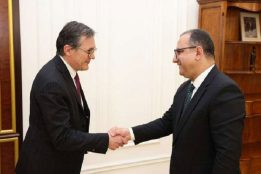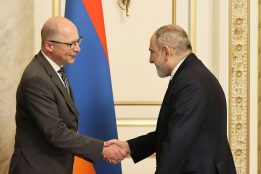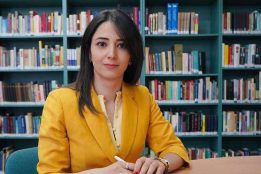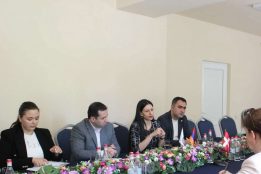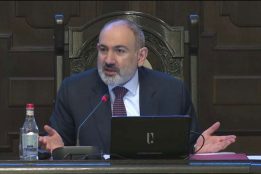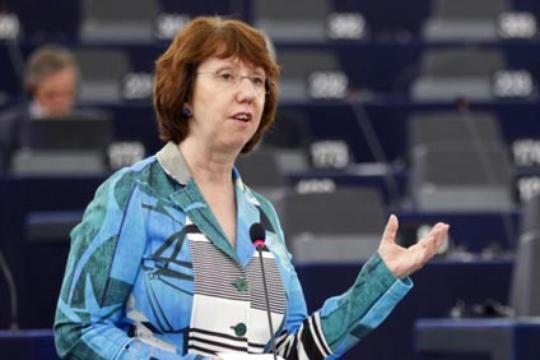
Radio Free Europe interviewed European Union’s high representative for foreign affairs and security policy, Catherine Ashton. Read the full interview here:
Next week, the European Union’s high representative for foreign affairs and security policy, Catherine Ashton, will travel to Georgia before she embarks on her first major tour of Central Asia (from November 26-30). In Central Asia, she expects to meet with the political leaders of Kazakhstan, Kyrgyzstan, Tajikistan, and Uzbekistan. RFE/RL’s Brussels correspondent Rikard Jozwiak spoke with Ashton about the goal of the EU’s Central Asia strategy, her approach to human rights in the region, and her message for leaders in Tbilisi since the recent wave of arrests of Georgian political figures.
RFE/RL: Your first stop will be in Georgia where you will meet both President Mikheil Saakashvili and Prime Minister Bidzina Ivanishvili. What will be your message to them, especially with the background of the recent arrests of political figures?
Ashton: We saw Georgia make a big political decision, a democratic transition, if you like, and I will say to Prime Minister Ivanishvili that we welcome the fact that as prime minister he wants to devote his energy to the economic challenges of his country, that he needs to think about some of the foreign policy challenges of the country, and he needs to make sure that in everything he does — particularly in the world of justice — that it is done in an open and transparent way. And I will say to President Saakashvili that he has his legacy already in Georgia in a sense, that it is important that he continue to work closely with the new government, important that he continue to push forward for Georgia on the things he believes in, especially, of course, the relationship with the European Union, which is, I think, of great significance for Georgia and of great importance to us.
RFE/RL: When you go to Central Asia, you will discuss the European Union’s Central Asia strategy with the political leaders. For many critics, the strategy seems like a big shopping list. Would it not be better to inject benchmarks to measure success?
Ashton: It looks like a shopping list, but actually, what we try to do is to pick up the different threads of issues. You are right, what we in the end need to do is make sure that we have a kind of success criteria. How do we know that we have been successful? And again, part of the reason for me to meet the ministers is to be able to try and work through with them what ways and in which areas [we can] be most successful in our collaboration. We are doing quite a lot of work on border issues, for example. I want to do more work on education. We want to try and support civil society [and] the movement forward for these countries economically. And we need to make sure that we’ve got in place the measures, the relationships, and the resources to be able to do that.
RFE/RL: Will you raise human rights issues, and is there a way to nudge the countries of Central Asia to observe human rights more thoroughly?
Ashton: It’s always part of my dialogue. And it’s done in a way that it enables us to talk about what that means in practice. What does it mean for women? What does it mean for women not just in their political rights but their economic rights? I believe, by the way, that economies are much better off when women are engaged; they are usually much more successful. What does it mean for people who want to make their own point politically? What does it mean for freedom of religion? What does it mean for people who are disabled? What does it mean for people who we need to celebrate [as] different and…the same? And for my discussions, it will be a core part of the dialogue that we have when we think about how the EU works with these countries into the future.
RFE/RL: But do you have any red lines? Is there a way for you to say what the countries in Central Asia cannot do?
Ashton: When you are working with a country, you are on a spectrum between isolation and engagement — and in many of the areas of the world that we work, we are moving along that spectrum. I personally believe that very rarely is isolation the answer. Engagement is usually a much better way forward, but it is engagement on the basis of principles. And it’s engagement in order to try and make things move forward. It takes time and it is not easy. It is often about convincing people that there is a better way of doing something, and it is also [about] respecting that these are countries that make their own decisions — it is not about us marching in to impose our views. But it is about the dialogue, the debate, and, if you like, the right kind of political work that enables us to try to move forward on the things that we hold dear.

















